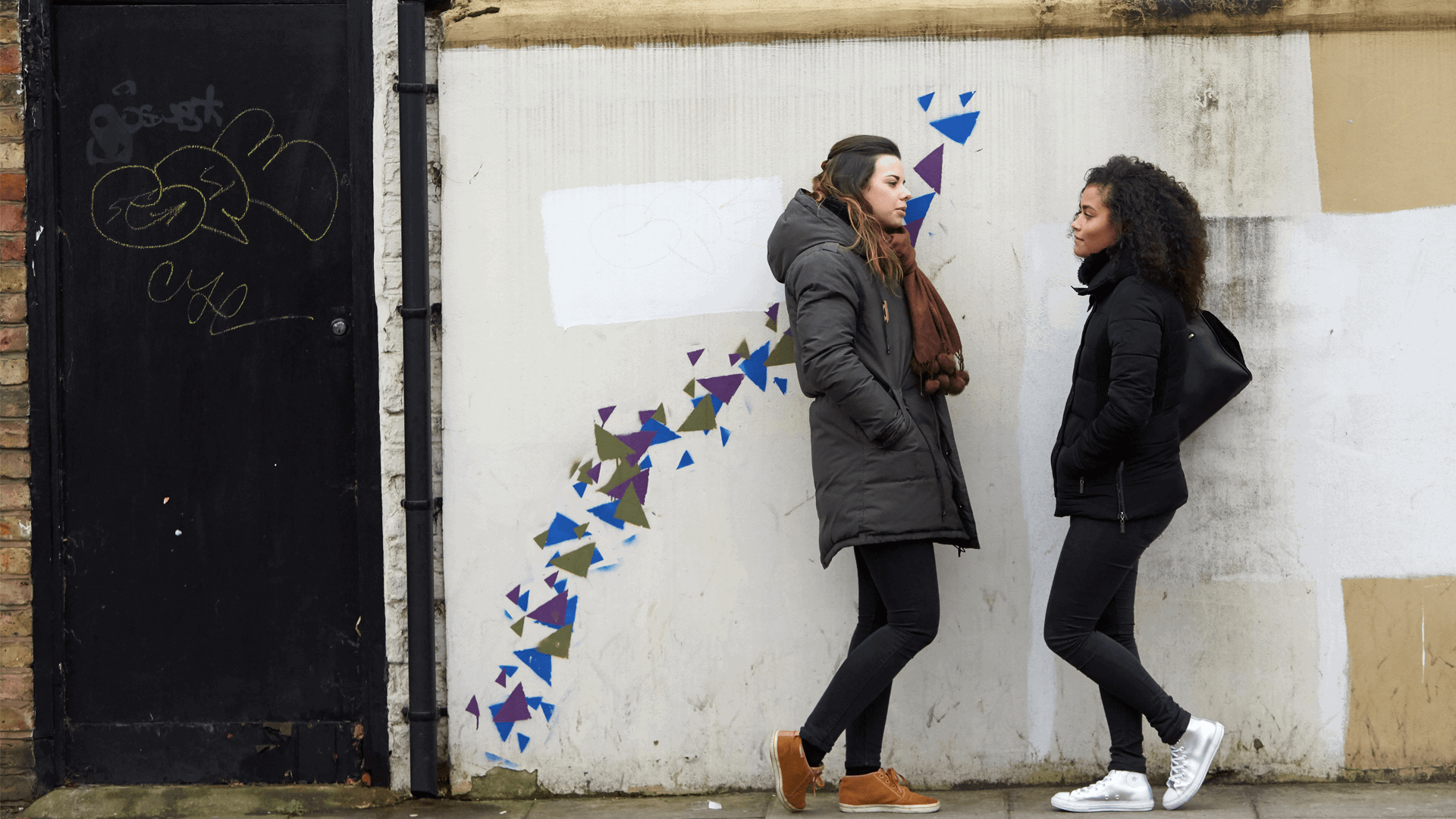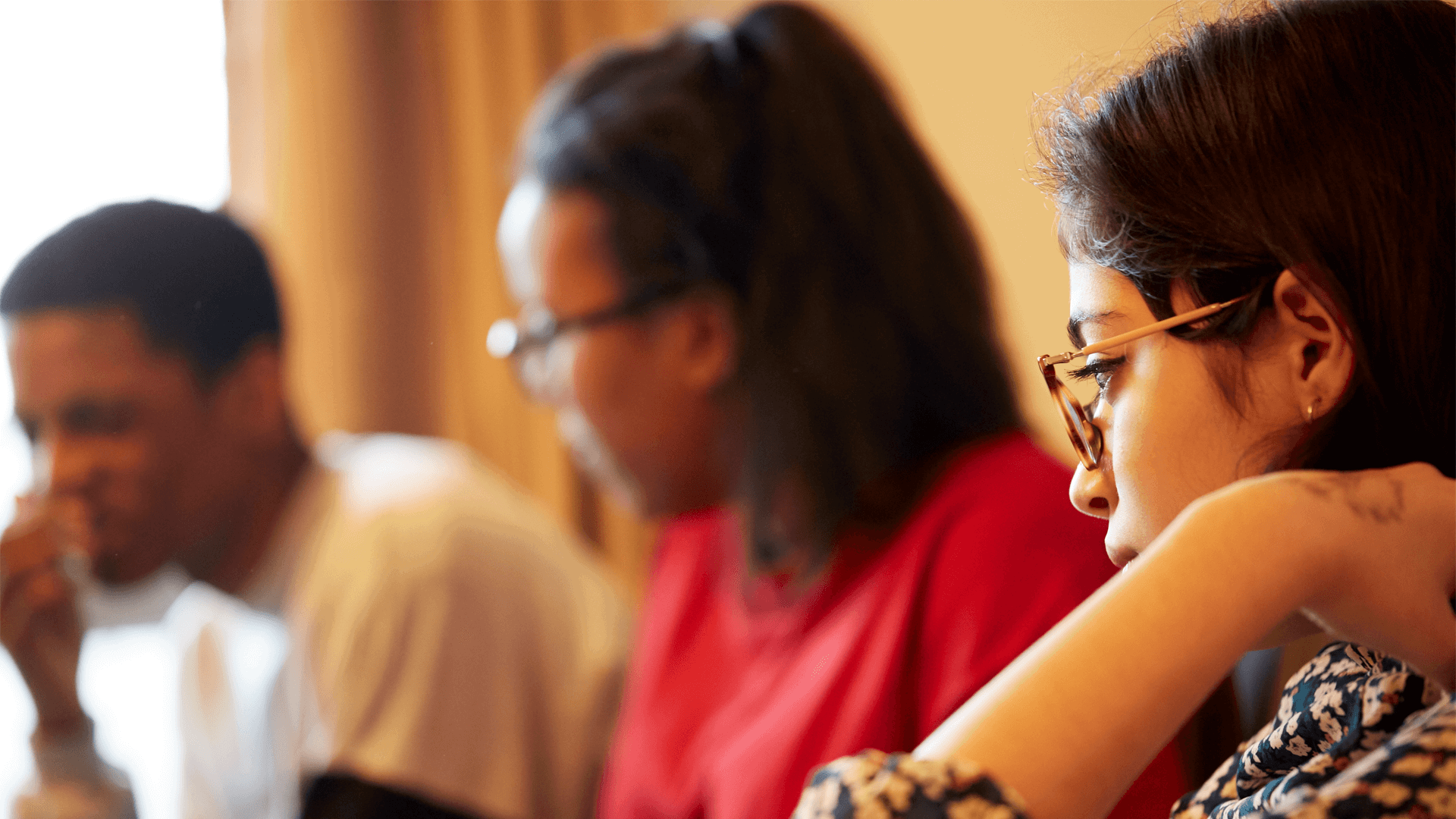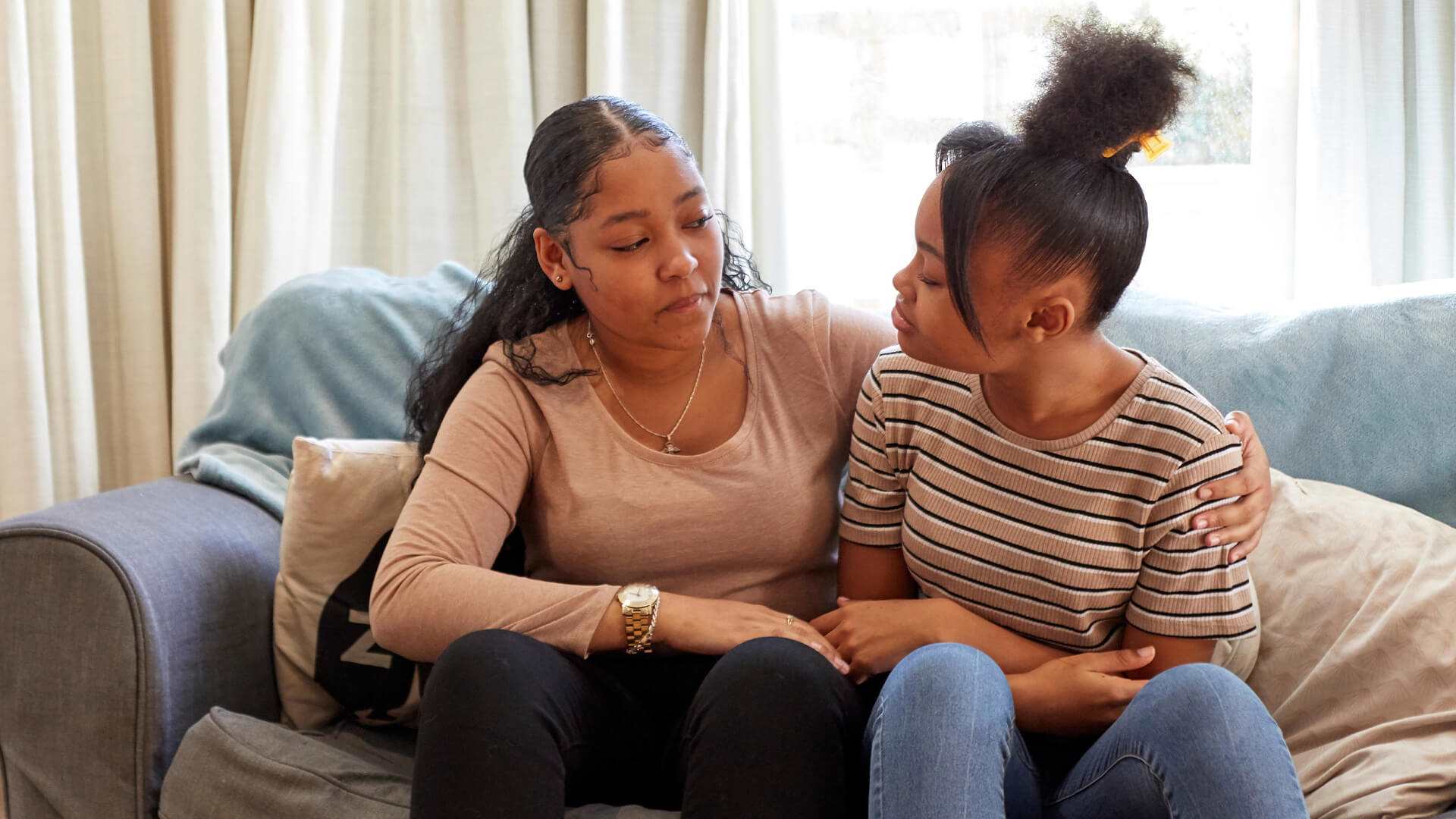
Being treated differently or unfairly because of our race, skin colour or ethnicity can negatively affect our mental health.
Racism can happen anywhere. It can happen at school, at work, or at home; it can happen online or outside; it can even happen within families and relationships. Sometimes racist abuse is obvious - verbal abuse about the way someone looks, stereotypes about how someone might behave, or physical violence and bullying, for example. Sometimes racism is part of the structures and systems that we live in. And sometimes racism is ‘subtle’ and difficult for other people to notice.
The important thing is how you see the situation and how it makes you feel.
We can spend a lot of time wondering whether we have been badly or unfairly treated because of our skin colour, race or ethnicity, or for some other reason, and it’s not always totally clear. This can make us feel confused or even foolish for talking about our experiences, especially if the people we are talking to have never had to ask themselves these sorts of questions.
Sometimes, even when we are convinced we have experienced racist treatment, people around us might try to tell us we’ve got it wrong. This can feel very lonely and isolating. But remember, you are not alone and your feelings are valid.
It’s also valid if you feel that experiencing racism ‘indirectly’ has an effect on your mental health. Sometimes the things going on around us, to people just like us, can feel like they have happened to us and make us feel personally attacked, helpless, or like our lives don’t matter.
You might also be affected by:
- racism directed towards your family and loved ones
- constant negative headlines about a group you identify with or a country you have ties with
- misrepresentation or no representation in the media
- noticing worrying patterns of behaviour from the institutions you interact with (whether at your doctor’s surgery, at school, at work)
- reading statistics that show unfairness and inequality across the justice, health and education system
- people dismissing how we feel, telling us we’re overreacting, or denying there is a problem
I decided I shouldn't feel ashamed of who I am - nobody should ever feel ashamed of who they are.

Our experiences of being treated differently from others because of our skin colour, race or ethnicity can mean that we live with constant fear or anxiety. We might start to avoid doing the same things that other people simply do without thinking about. Some examples of this can include:
- speaking in another language, or with an accent, in public
- using public transport or going to certain public places alone where you could be a minority
- using your real name on a job application
- worrying about interacting with the police
- worrying about wearing the clothes we want to wear
- hiding parts of our identity, like our religion or culture
- sharing our worldview and taking part in topical discussions
- visiting places, or going on holiday to places, where racism has been reported
Racism, directly or indirectly, touches every person of colour and has an effect on our mental health.
What can I do to improve my mental health?

Here are some things you can do if racism is affecting your mental health:
1. Speak to someone you trust about how you are feeling, like a family member or a friend. Talking about how you feel can often be the first step to getting help and finding support. It might feel difficult to talk about how you are feeling or to revisit personal experiences of racism. Take your time and only share what you want to.
You might find it helpful to talk to someone of a similar race or ethnicity to you. The Black, African and Asian therapy network have a directory of specialist Black and minority ethnic (BME) counsellors or therapists.
2. Speak to your GP if you:
- are experiencing flashbacks or intrusive thoughts about a traumatic incident or think you might have PTSD
- have a continuously low mood, depression or low self-esteem
- are feeling numb or empty inside
- experience changes to your sleeping or eating habits
- experience any changes to your mood and behaviour that feel out of the ordinary
- are feeling worried or are anxious a lot of the time
3. Learn your rights and how to report abuse. This can help you feel empowered and remind you that what you are experiencing is not okay and no one should believe that it is.
4. Find supportive groups and communities who understand what you are going through. It can be very hard to explain how you feel to a person that has not experienced racism, whether directly or indirectly. Online communities can be a way to find like-minded people with similar experiences and shared interests that you can talk to, have a safe space to be heard and remember that you are not alone.
5. Join a movement to create change. There are many anti-racist movements and organisations who are fighting for change in society. Being part of a larger movement can help you feel empowered, valued and give you a sense of hope that change is possible. Make sure to take time out to rest and look after yourself if you are regularly involved in activism.
6. Remember it is not your responsibility to fix racism. Do not put pressure on yourself – this is a problem you cannot solve on your own. The people around you all have a responsibility to make changes to their behaviour and to uphold the rights of Black and ethnic minority groups.
7. Clean your social media feed. What we see on online can have a negative impact on our mental health, but remember you can have control over what you see on your social media. Try unfollowing or blocking accounts and muting words that upset you. All social media channels have ways you can report abusive behaviour.
If you’re experiencing racism online, reporting it is perfectly reasonable and the right thing to do because racial discrimination is illegal.
Blogs on racism and mental health
Read our blogs written by young people on racism and mental health:
Racism and my mental health
"Nobody has any right to discriminate against you based on your race or ethnicity. Ever." Our Activist Luke, 15, shares how his experience of racism has affected his mental health.
Black mental health matters
Everybody deserves mental health support when they need it. Our guest blogger, Wes, shares why it's important that we talk about Black mental health.
How racism impacts my mental health
Sian, 19, shares how racism affects her mental health, and what helps her cope.
I think it is important to remember how far we have come in the last century, both in the fight for racial equality and in mental health awareness.
Reporting a hate crime
Any crime motivated by hostility or prejudice towards someone because of their race or ethnicity is a ‘hate crime’. Anybody can report a hate crime - whether they are the victim, someone who witnessed the crime, or someone the victim has told about the crime or incident.
You can report a hate crime online, via the True Vision website.
It is the world that’s wrong, not you. So embrace your identity and love what makes you, you.
What should I do if I think a mental health professional is being racist?
If you need help and support with making a complaint, you can contact your local NHS Complaints Advocacy service. This is a free and confidential service, independent from the NHS.
Contact your local council to find out who the advocacy provider is in your area.
How you can raise a complaint:
-
Speak up
Every NHS service provider (such as your GP, or hospital) has their own complaints procedure. You can find information on making a complaint on your service provider’s website, in waiting rooms, or by talking to a member of staff.
-
You have options
You can choose to complain to the NHS service provider directly, or to the commissioner of the services, which is the body that pays for the NHS services you use.
-
Choose your communication method
You can make a complaint verbally, in writing, or by email.
-
You should get an acknowledgement
Once you have made a complaint, you should expect an acknowledgement and the offer of a discussion about the handling of your complaint within working days.
-
For more information
Visit the NHS webpage on making complaints for more guidance.
Get help now
Where to get help
See below for a list of organisations and helpline services that have information to support you.
-
Stop Hate UK
Provides independent, confidential and accessible support for victims and witnesses of hate crimes or discrimination.
Information on accessibility available here.
Operates a specialist 24/7 support service for young people under the age of 18 called Call Hate Out.
You can report any form of hate crime through their website here.
- Opening times:
- 24/7
-
Boloh
Supports Black, Asian or Minority Ethnic children (11+), young people and parents and carers who have been affected by Covid-19. You can call to talk through any worry or problem, including around issues such as bereavement, physical or mental health, financial issues or unemployment, or bullying and racism.
You can speak to someone in English, Gujarati, Urdu, Bengali, French, Spanish, Arabic, Punjabi, Mirpuri, Pothwari, Hinko, Hindi and Sundhi. Interpreters are available for other languages.
Webchat service available here during opening hours.
- Opening times:
- 10am - 8pm, Monday - Friday; 10am - 3pm on Saturdays and Sundays
-
Black Minds Matter
Connects Black individuals and families with free professional mental health services across the UK.





